Covid: Three-tier lockdown system to be unveiled in England
- Published
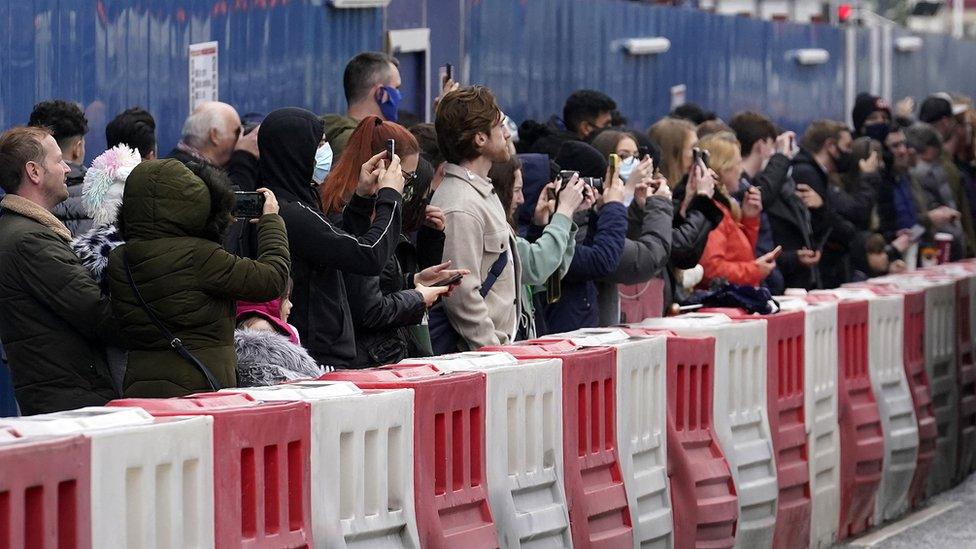
Crowds gathered in Liverpool on Monday to watch filming for a new Batman film in the city
Boris Johnson is due to announce a new "three-tier" Covid system for England.
The PM will address Parliament at 15:30 BST, setting out different rules for regions classified as being on "medium", "high" or "very high" alert.
The Liverpool City Region - home to 1.5 million - is expected to face the tightest restrictions with pubs and gyms closed, and further rules on households mixing indoors.
Newcastle council's leader has said the North East could avoid tighter rules.
Mr Johnson will address MPs before holding a Downing Street news conference. Other areas awaiting news of further restrictions include Greater Manchester, Nottingham and Leeds.
Liverpool recorded 600 cases per 100,000 people in the week ending 6 October. The average for England was 74.
The Liverpool City Region includes the local authority districts of Halton, Knowsley, Sefton, St Helens and Wirral, as well as Liverpool.
Local MPs were told during a call with Health Secretary Matt Hancock all bars, pubs, gyms and betting shops will be closed while restaurants will remain open for the moment.
Legal restrictions will also be placed on indoor household mixing and there will be guidance on travel restrictions.
The new curbs are to be reviewed after a month.
Mr Johnson chaired a meeting of the emergency Cobra committee "to determine the final interventions" on Wednesday morning.
Scotland's First Minister Nicola Sturgeon said experts told Cobra even tier three restrictions would be unlikely to bring the UK's R number - the rate at which an infected person passes on the virus - below 1.
The PM will announce changes in Parliament, before speaking at a Downing Street news conference at 19:00.
He is expected to be joined at No 10 by Chancellor Rishi Sunak and England's chief medical officer, Prof Chris Whitty.
Videos on social media showed Saturday night street scenes in some cities, including an impromptu game of cricket
During a data briefing earlier, NHS England medical director Stephen Powis said more people were now in hospital with Covid than before restrictions were introduced in March.
He confirmed Nightingale hospitals in Manchester, Sunderland and Harrogate were being prepared to take patients.
Prof Jonathan Van-Tam, deputy chief medical officer for England, said infection rates had never dropped as low in the northern England as in the South but warned "things are heating up" across the country.
Tougher measures were introduced in Scotland on Friday, including the closure of pubs and restaurants across the central belt, while the Welsh government has said the next few days could determine if "national measures" are implemented.
Under the new system for England, tier three is expected to involve the tightest restrictions.


We know the broad outline of what the government is going to announce today.
Ministers have been working on a tier system for local restrictions in England for weeks - and today they'll confirm how it will work and the basic principles.
The Liverpool region is set to be the first put into the "very high" top tier - which will mean significant restrictions on hospitality within days.
But there are still details of a support package being worked out.
The metro mayor in Liverpool Steve Rotheram is adamant there needs to be more support for workers and businesses that will be told to close.
He doesn't think the chancellor's current plans go far enough - and I'm told conversations on economic support are likely to continue into this afternoon.
There have been questions about definitions - when is a pub a pub, which could be told to close, rather than restaurant which might not?
It's worth highlighting that if other areas are added to the highest tier in the next few weeks, restrictions may look different.
Sources say there is room for flexibility based on local factors.

Liverpool City Region mayor Steve Rotheram said he wanted "some surety from national government that if we hit some milestones we can come out of tier three very quickly".
He said the government had been clear the Liverpool City Region would be placed in the highest category, with "no ifs, no buts", and he added it had already been agreed there would be more local control over the tracing of close contacts and enforcement of restrictions.
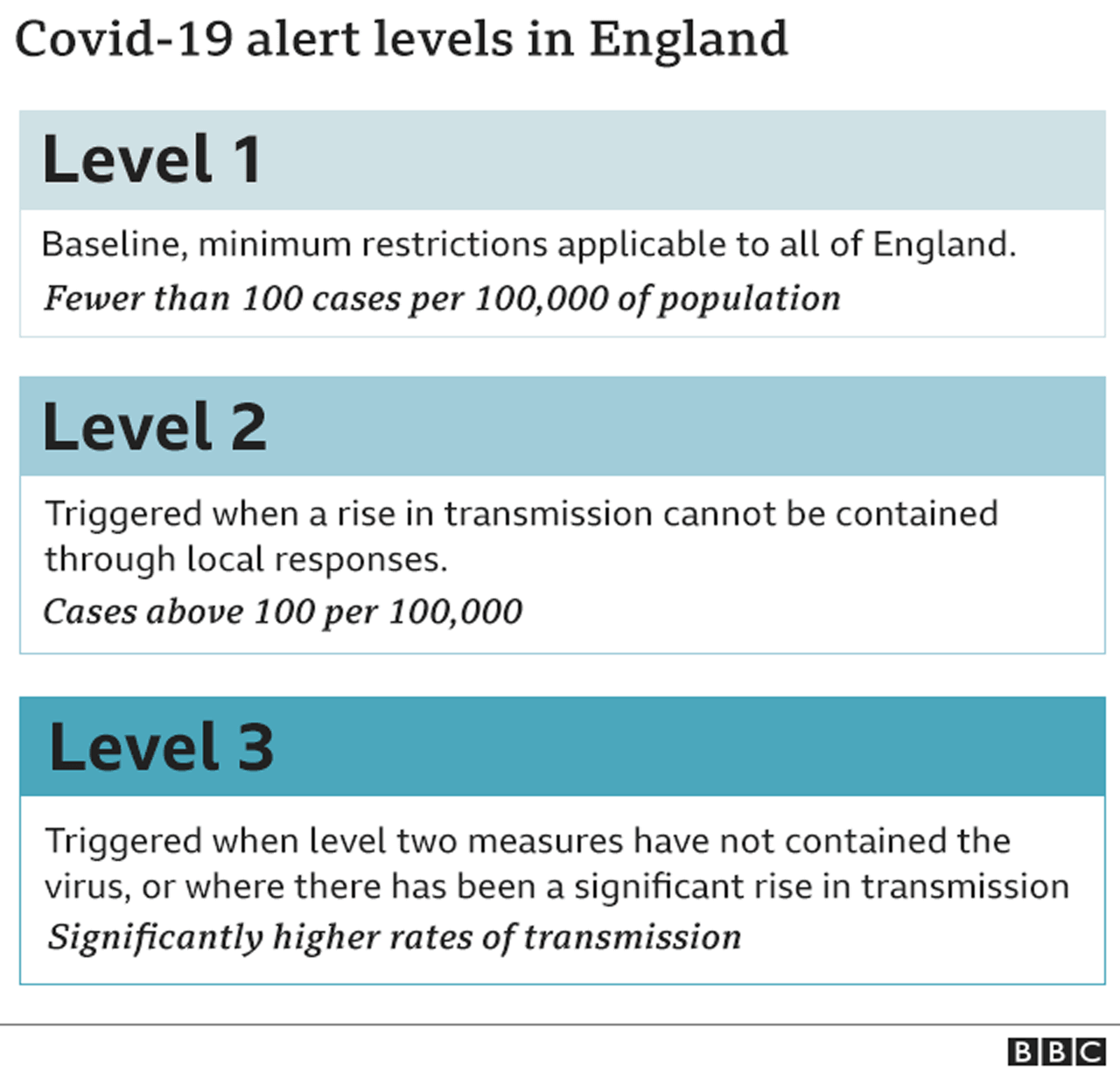
Culture Secretary Oliver Dowden said the government was "not panicking" but taking "reasonable and proportionate measures", adding that "we know there are challenges around hospitality".
Calum Semple, professor of outbreak medicine at the University of Liverpool and advisor to the government, said: "Most of the outbreaks are happening within and between households and then after that, it's in the retail and hospitality sector.
"So, the major issue here is to focus on the cities and areas with the largest outbreaks and sadly my home city of Liverpool is being hammered at the moment. These restrictions are necessary."


The problem with introducing the sort of restrictions that are being suggested to control the spread of the virus is that no-one is really sure whether they will really work.
Firstly, while the government's advisers can track patterns in where infected individuals have been prior to being diagnosed, they cannot prove that they were actually infected in those places.
Secondly, there will be unintended consequences.
Close pubs and you may make the situation worse by driving people to mix more in private homes which are less "Covid-secure".
It is a point that has been made in recent days by Manchester City Council leader Sir Richard Leese as well as others as ministers weigh up their options.
Then there is the economic, social and emotional toll of closing down parts of a community.
These are decisions that will divide opinion and, what is more, it will be nigh on impossible to judge exactly what impact they will have had on the virus.

Oldham West and Royton MP Jim McMahon said Greater Manchester would be placed in tier two - "with household restrictions on meeting indoors in any setting, but not outdoors" - and pubs that serve food staying open.
It came after Sacha Lord, Greater Manchester's night-time economy adviser, started legal proceedings to challenge any restrictions on hospitality and entertainment venues in the North of England.

SOCIAL DISTANCING: How have rules on meeting friends changed?
FACE MASKS: When do I need to wear one?
TESTING: How do I get a virus test?

People in 17 parts of Wales now face local lockdown rules - and cannot leave these areas without a good reason, such as going to work.
Wales' health minister Vaughan Gething said he was disappointed that the prime minister was not issuing guidance on whether people should travel out of highly infected areas.
Ministers and health officials in Northern Ireland spent Sunday discussing what to do about the rapidly increasing rates of the virus. One MP said he believed lockdowns would be examined by the Northern Ireland Executive on Monday.
On Sunday, 12,872 people in the UK were reported to have tested positive for coronavirus - some 2,294 fewer than on Saturday.
There were a further 65 deaths - down from 81 on Saturday.



How could the new restrictions affect you? Share your experiences by emailing haveyoursay@bbc.co.uk, external.
Please include a contact number if you are willing to speak to a BBC journalist. You can also get in touch in the following ways:
WhatsApp: +44 7756 165803
Tweet: @BBC_HaveYourSay, external
Please read our terms & conditions and privacy policy
If you are reading this page and can't see the form you will need to visit the mobile version of the BBC website to submit your question or comment or you can email us at HaveYourSay@bbc.co.uk, external. Please include your name, age and location with any submission.
- Published11 October 2020
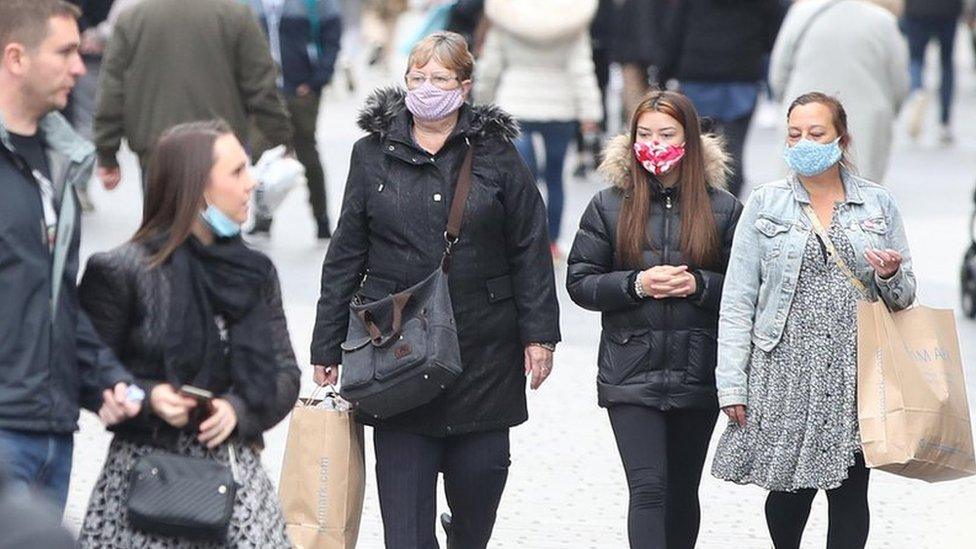
- Published11 October 2020
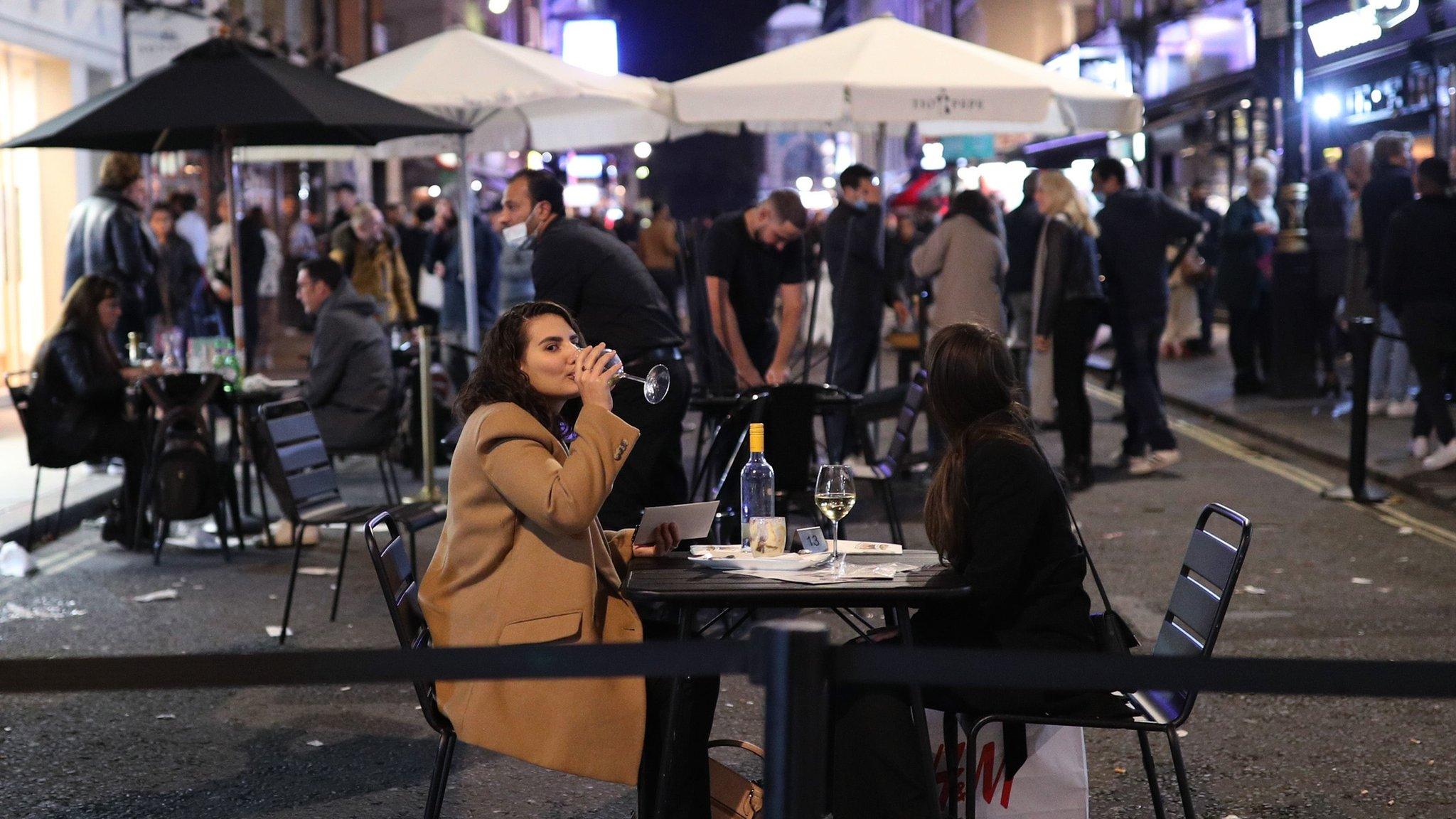
- Published26 January 2022
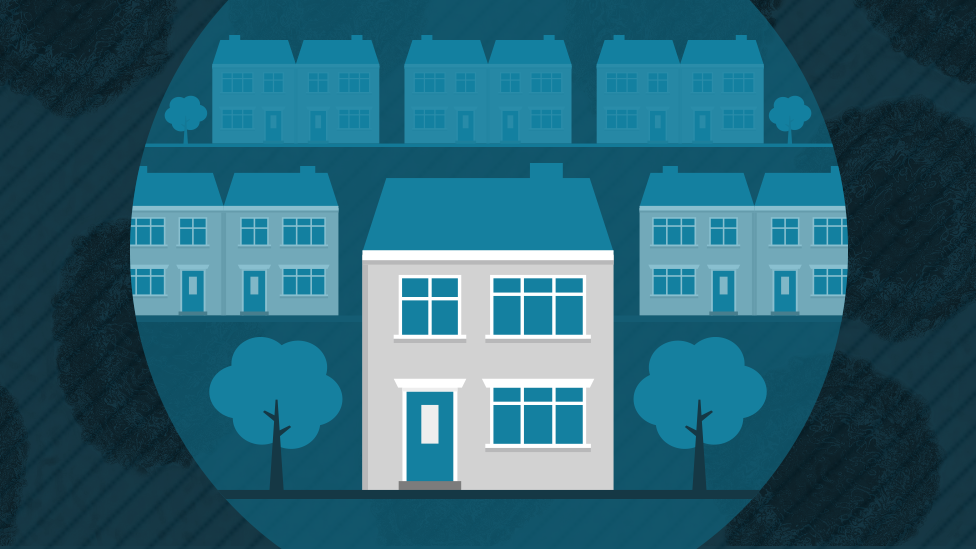
- Published5 July 2023

- Published7 October 2020
